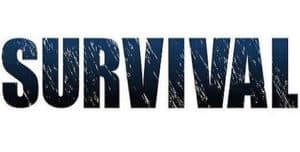Often times, surviving isn’t as much about knowing what to do as it is about training yourself what NOT to do. When all of your instincts are telling you to do one thing, sometimes you must do the opposite. It’s important to know when this is happening and how to manage it!
In a crisis situation, it is well-known that most people do not respond in the way they should, or think they would. You need to accept this as fact, understand it, and train yourself to not be like “other” people in these disasters.
When faced with a disaster/emergency scenario, your actions or lack thereof may play a huge part in your chances of survival.
Here are some behaviors you should actively decide you will NOT do in these situations:
1) Panic
One of the worst things you can do in a disaster is to panic. This is something that many people ultimately do and it can be fatal for you and those around you.
Although easier said than done, it’s important to stay calm! Nothing good can come from panicking or following a crowd that is in an irrational panic. Calmly assess the situation, find the best possible solution, and proceed in an orderly fashion.
2) Freeze
The two most common reactions in an emergency situation are freezing and panicking. We’ve already discussed one of them above, so let’s resolve the other now… Do NOT freeze up!
You might think you won’t but you would be surprised as the most natural response for humans in the face of danger is to simply do nothing. Sounds unbelievable, I know, but it’s true. Even in the animal world freezing up is a very common response in an attempt to avoid danger — such as the “deer in the headlights” phenomenon.
Fighting your instinct to freeze up is vital to your survival.
3) Get Tunnel Vision
You probably think that if you were in a crisis, you would respond by creatively thinking your way through the problem. However, it’s usually quite the opposite! Typically the response to a disaster is the act of “perseveration” which is attempting to solve a problem in a single way, again and again, regardless of the results.
It’s important to know this can and likely will happen to you as well. So you can step back and understand what is happening, and get yourself out of the proverbial tunnel.
4) Ignore Advice
If a disaster is coming, and we all know it, then you will certainly get official advice from the government or other authorities on what they suggest you do. If it is a sudden unexpected emergency then you will likely still get some of this official advice after that fact. The vast majority of the time, it’s important that you don’t ignore it.
Yes, there are certainly some instances where you might be better off not listening to the advice, but most of the time it will be in your best interest to follow it. If you are a professional prepper or have advanced survival skills, you might be able to bypass this one, but you should still at least consider what they are saying.
5) Deny
A statistic that you might find completely baffling (I know I do) is that roughly 50% of the population in any disaster will simply ingnore the danger altogether. They go into a denial phase either because they fail to interpret the situation as dangerous, or because they simply don’t want to for whatever reason.
Scientists have proven that most of us are horrible at risk calculation. When stakes are the highest, our brains tend to rely more on feeling instead of fact. We will banish stressful thoughts and reassure ourselves by explaining away the dangers.
To put it simply; Don’t be one of these people!
Conclusion
Things are going to be crazy no matter what disaster, emergency, etc… you are in! There’s a good chance that you assume you will be ready when this does happen, but the statistics say otherwise.
You need to prepare your mind, go through practice scenarios, remember the advice above, and make sure you don’t fall victim to what “everyone else” does when SHTF.
